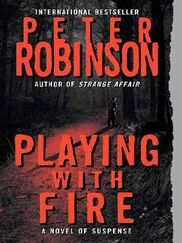Chris looked at a hundred different menus, checked the pricing and talked to bored waiting staff. A picture began to emerge, and he already knew that Edinburgh was not for us. Edinburgh makes money and keeps it. They spend it carefully and primly on school fees at Fettes or antique fire¬ guards. There is no joy here, nothing that drives people out to get rat-arsed on a Friday in an Armani suit with a midnight call to the wife to hand supper to the dog.
There was a lovely story while Chris was up there. That evening, he got a cab over to Leith to try out Martin Wishart, who was making a name for himself in his restaurant by the quayside. As always, Chris was dressed in a suit, and having sat down, he went through the card and managed a bottle of decent claret. Having finished, he asked if he could have a look in the tiny kitchen, and Martin obliged. The following morning, Martin was on the phone to me to say that, without any doubt, he had been visited by a Michelin inspector the previous night. I was really happy for him until I asked what the inspector had drunk, and, on hearing that a bottle of claret had been downed, I questioned Martin a bit closer. There is no way that a Michelin inspector would ever do that, and neither of us was any the wiser until Chris returned and mentioned what a great dinner he had had in Leith.
It’s a different story in Glasgow, however. Everyone knows how to have a good time there, and it’s not thought irreligious to spend a few quid on proper wine. It’s a more frenetic city, full of people who have no ambition other than to live life.
Just as we were discussing all this, the phone rang from Glasgow. Someone wanted to sell a big restaurant right in the heart of the city. We both went to look, and suddenly the old excitement resurfaced. Nothing thrills like the thought of a restaurant full of good food, good service and the musical whirr of the credit card machine. A million makeover versions swamped our minds. Everyone was writing their versions of the menu, sketching designs with seating plans on the back of used envelopes. The big question was: how far was the Rangers ground from there? How would it figure on a match day? I was dreaming, and already, in my stupid eagerness, I lost the plot.
Still, before I had time to think, the whole project had sprouted wings and suddenly there were surveyors, lawyers, electricians and rodent catchers, all present to put this together and submit fancy bills for their endeavours. I was getting a bit uneasy with the people who were selling the restaurant to us. They were keen – too keen – to impress me with the size of their other operations, and then suddenly they started to talk about the crappy abstract artwork in the restaurant. They pointed out that these early works of infants at school were not included in the sale, but could be made available as a side purchase.
Here we go again, I thought. However big someone is, Rule Number One is this: if there is cash, they want it, and these greedy arseholes were about to lose a deal because they wanted a few readies on top of a shedload of money for their restaurant.
Chris and I talked about it. We were both totally pissed off that, having talked through the heads of terms, some dickhead started to murmur about a few pictures so they could screw some more money out of us. We don’t do side deals. So the deal turned stone cold, and Chris told them why. It no longer matters now, but they were totally mystified.
Then the phone rang. It was Glasgow again, and this time, One Devonshire Gardens, Glasgow’s chic West End boutique hotel. Now this was a boner, and I was up there with Chris, as keen as a setter on the scent.
The place looked right immediately: three houses joined together and filled with browns, tweeds and long, elegant drapes, and with rooms the size of snooker halls. There was a smooth life going on here, but the one thing that they didn’t have was a restaurant. Fuck me! We can arrange that. And, in doing so, fine dining would come to my home town. The more I saw of this fantastic establishment, the more I fell in love with it, and any numerical doubts faded away, along with my sense of judgement.
We went back to London, and the whole process of negotiation, lawyers and contracts started all over again. We found Scottish lawyers, who are a different bunch to our beloved Joelson Wilson & Co., but Scotland is Scotland, and they play by a whole different set of laws. Soon we had a deal, and it was only a matter of time before wet ink was scrawled across a ten-year lease and an accompanying operating agreement.
The first base in this home run, as always, was a chef, and I already knew who was going to head north to run the kitchen. This remote outpost would also need a general manager, and I had just the person in mind. From then on, there was a long succession of trips to One Devonshire Gardens by our human resources manager, our operations staff and the kitchen designers. Gradually, a shape was evolving, and although the English press was pretty low-key about this adventure, the Scottish papers were lining up their sharpened pencils.
Amaryllis opened to a Scottish fanfare. We had a launch party that rocked late into the night, which was all very well, but the following day, we were open for business. The opening weeks went well. Nobody could believe that this restaurant was attracting forty covers for lunch and sixty-five in the evening. I did more television interviews and talked to more journalists than ever before. The critics moved in. Their reviews made good reading, and I knew we were already on the way to a Michelin star.
At what stage did I realize that things were going wrong and that the paste that held up the wallpaper was just too thin? Well, if the truth were known, it was not so for far too long.
But it was soon clear that the pressure from Glasgow on our London operation was beginning to grow. The northern kitchen brigade was rowing, absenteeism was at a level not known to us in the south. On top of all this, the owners of the hotel had just run into trouble.
It is always traumatic for everyone involved when there have to be changes in senior management. The finger of blame can only point to myself and Chris, and if we get an appointment wrong, then it will certainly be us who end up paying the price.
All you can do when you appoint someone is interview them and check out their reputation. But reputations are leaked, spread, smeared or openly published, and are often the stuff of crap and nonsense. I know how I can exaggerate and pass on stories about them as if I witnessed the whole thing myself – when, actually, I’ve never met them. As for the interview, well, that can be a trip to Disneyland. Nobody ever goes to an interview with a long list of their weaknesses. They save them for later, and drip-feed them when you least expect it.
So, a new appointment is made, and off we go into the woods, axes in hand, ready to build a tree house. All is sweet to begin with, and slowly, almost imperceptibly, ominous signs begin to appear. They may not have forgotten the axe, exactly, but, at some stage, it will need sharpening and the stone was left at home. The idea is that senior managers have to think things out for themselves. They have to plan, budget, foresee everything and make things happen. If you’re building a tree house, you need drawings, materials, a compliant workforce, safety procedures to stop Bob the Builder from falling off the tree holding his chain-saw, and the house needs to face the right direction to catch the sun. In fact, someone must be experienced enough to see the whole thing through.
If that doesn’t happen, you know you’ve got a problem. When a bend in the road appears, you get a choice. You can either steer around the corner or you can fail to notice it, ignore it, and crash. That’s when you have the odious task of saying goodbye and having to look for someone else, and you know in your heart of hearts that it is not so much a senior management failure, but your own fucking fault – or Chris’s fault, if I’m feeling that evil.
Читать дальше












